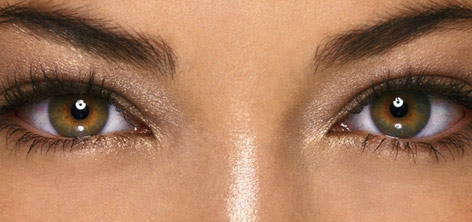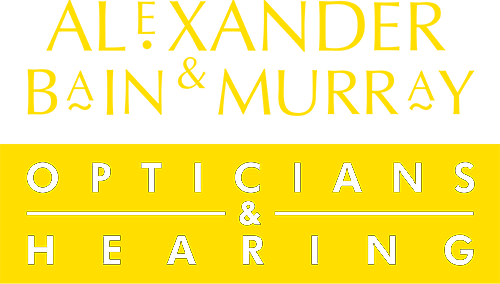The welling-being of your eyes is an integral part of your overall health .
Alexander Bain and Murray opticians work with you to help care for your vision.
[divider]Could you Qualify for a FREE NHS Sight Test?[divider]

You are entitled to a free sight test if:
- You are under 16 years of age
- You are a full time student aged 18 and under
- You are 60 years or over
- If you have diabetes
- If you have glaucoma
- If you are 40 years or over and have a family member with glaucoma
- You are blind or partially sighted
If you or your partner are in receipt of the following benefits:
- Income Support
- Job Seekers Allowance
- Employment Support Allowance
- Pension Credit Guarantee Credit
- NHS Tax Credit Exemption Certificate
for further information about entitlements, Click Here
[/one-half]
[one-half last]
[divider]Children’s Eye Health[divider]
Signs to look out for:
- One eye turns in or out
- They rub their eyes a lot
- They have watery eyes
- They are clumsy or have poor hand and eye co-ordination
- Your child avoids reading, writing or drawing
- They squint or frown when reading or watching TV
- They sit very close to the TV, or hold books close to their face
- They have behaviour or concentration problems at school
- They don’t do as well as they should at school
- They complain about blurred vision or have unexplained headaches
If you have any concerns about your child’s vision, call us immediately to arrange an eye examination. *NHS eye examinations are free for children under 16 – contact us to find out more*
[divider]Anti-fatigue lenses[divider]
 The Life Improvement Lenses
The Life Improvement Lenses
In today’s hi-tech world the eyes are constantly focusing on computer screens, tablets and mobile phones. When combined with long work hours, this prolonged accommodative effort often leads to tiredness, tearing, headache and blurry vision.
This unique optical solution significantly reduces eye fatigue and improves visual comfort for all single vision lens wearers.
Ask your optician about “Tact TrueForm Lenses”
[/one-half] [one-half last][divider]Your eyesight as you get older[divider]
 It is normal for our eyes to change as we get older. Normal changes include losing the ability to focus on things that are close-up (presbyopia), finding that it takes longer to adapt to changing lighting conditions and finding that we need more light to see things.
It is normal for our eyes to change as we get older. Normal changes include losing the ability to focus on things that are close-up (presbyopia), finding that it takes longer to adapt to changing lighting conditions and finding that we need more light to see things.
we are also become more susceptible to eye disease. The most common eye diseases in older people are cataracts, age-related macular degeneration and glaucoma.
For more information on these conditions please select from the links:
[/one-half][one-half]
[divider]Dry Eye Syndrome[divider]
 Dry eye syndrome, or dry eye disease, occurs when the eyes do not make enough tears, or the tears evaporate too quickly because the oil glands are blocked or abnormal. This leads to the eyes drying out and becoming inflamed (red and swollen) and irritated. Dry eye syndrome is a common condition. It tends to affect people above 60 years of age, but it can affect younger people. It is also more common in women than men. The symptoms of dry eye syndrome can be mild or severe.
Dry eye syndrome, or dry eye disease, occurs when the eyes do not make enough tears, or the tears evaporate too quickly because the oil glands are blocked or abnormal. This leads to the eyes drying out and becoming inflamed (red and swollen) and irritated. Dry eye syndrome is a common condition. It tends to affect people above 60 years of age, but it can affect younger people. It is also more common in women than men. The symptoms of dry eye syndrome can be mild or severe.
They include:
- Dry or sore eyes
- Blurred vision
- The feeling of something in your eye
- Burning
Treating Dry Eye Syndrome
Dry eye syndrome is not usually a serious condition, unless it is due to inflammation or certain diseases where there is an overactive immune system.
Steps can be taken to relieve the symptoms, including:
- Treating the underlying cause
- Using ocular lubricant eye drops
- Wearing specialised eyewear
- Punctal plugs
- Lacrimal syringing
If you have experienced any of these symptoms, please speak with your optician. Alexander Bain and Murray opticians specialise in the treatment of Dry Eye Syndrome.
[divider]Help preserving your eyesight[divider]
Looking after your vision can be simpler that you think!
Here are some pointers from ABM opticians that we know to help improve the longevity of your eyesight:
- Have regular eye examinations. This will allow your optometrist to spot early signs of eye disease, when it is easier to treat. Most people should have an eye examination at least every two years.
- Stop smoking. Smoking has been linked to AMD, which is the leading cause of blindness in the UK. NHS services are available to help you quit. Visit www.smokefree.nhs.uk for more information.
- Eat a diet that is rich in oily fish, coloured fruit and vegetables and maintain a healthy weight. This may reduce your risk of developing AMD.
- Be aware of your vision in each eye separately. Many conditions appear in one eye first.
Here are some useful links to websites that have great advice on preventive eye care:
[/one-half]